THE FALL OF THE HOUSE OF USHER (2023) – Miniseries
The ageing CEO of a corrupt pharmaceutical company faces his questionable past when his children start dying in mysterious and brutal ways.
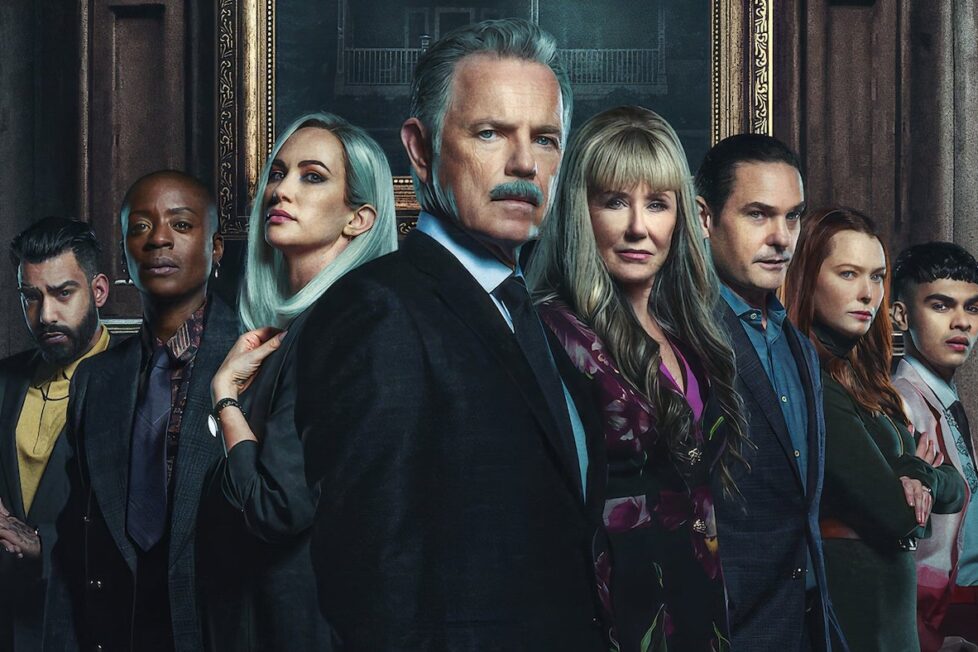
The ageing CEO of a corrupt pharmaceutical company faces his questionable past when his children start dying in mysterious and brutal ways.


Mike Flanagan’s become a staple of Netflix’s Halloween slate over the last few years. Since inking an overall deal with the streaming giant following the success of his earlier movies—most notably Hush (2016) and Gerald’s Game (2017)—Flanagan’s masterminded a horror series almost every year, interrupted only by the release of his Stephen King adaptation Doctor Sleep (2019).
His latest offering, The Fall of the House of Usher, caps his tenure at Netflix before jumping ship to rivals Amazon. Inspired by the works of Edgar Allan Poe and loosely adapted from his short story of the same name, House of Usher tells the story of the eponymous family who control a multibillion-dollar pharmaceutical company, only to perish one by one under mysterious and literary circumstances.
Like Flanagan’s past work, this series boasts a large ensemble cast comprised of actors he’s utilized before, stern dramatic monologues… and a whole lot of blood, guts, and ghosts. Familiar faces include Carla Gugino as the mysterious and deadly Verna, Henry Thomas, Samantha Sloyan, Rahul Kohli, T’Nia Miller, Sauriyan Sapkota, Bruce Greenwood, and Flanagan’s wife Kate Siegel as the Usher children, among others. One notable addition to the Flanagan family includes an underutilized Mark Hamill (Star Wars: The Last Jedi) as the Usher’s sketchy lawyer Arthur Pym.
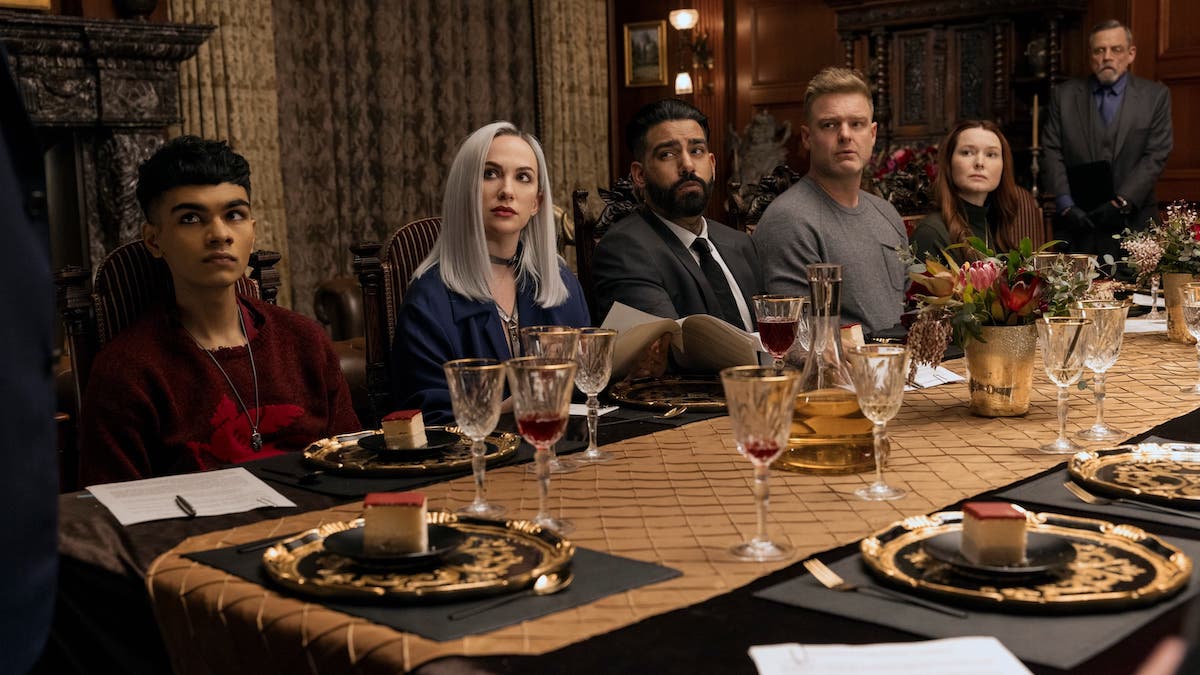
Unlike some of his past miniseries, however, The Fall of the House of Usher doesn’t add anything new, novel, or even that scary to his repertoire. Though drawing on the deep and much-beloved well of Poe’s literature—stories ripe with drama, tension, oddness, and yearning—this series merely borrows character names, loose scenarios, some of his poems, and throws in a few ravens for good measure. Each episode is named after a famous poem or tale, with each character’s violent death mirroring that of a Poe story, but the resemblance ends there. Even calling it a homage would be generous.
This in itself wouldn’t make it a terrible show. But combined with the more derivative story and character choices, and an overall lack of restraint over eight episodes, the result is a drawn-out affair that reminded me of other writers and better shows. The Usher family bears a strong resemblance to other billionaires we’ve seen on TV in the past year, like the Roy family of HBO’s Succession, and the Sackler clan famous for running Purdue Pharma into the opioid crisis, depicted in this year’s Painkiller. With an overbearing and unloving patriarch running the ship, and his many offspring vying for their father’s attention and influence in his company, The House of Usher taps into a well that’s already run dry, and doesn’t manage to make this family seem that different from the real or fictional one that’s inspired it. Even the music score, full of orchestral arrangements of heavy strings and grand pianos, sounds like the Succession theme shuffled up.
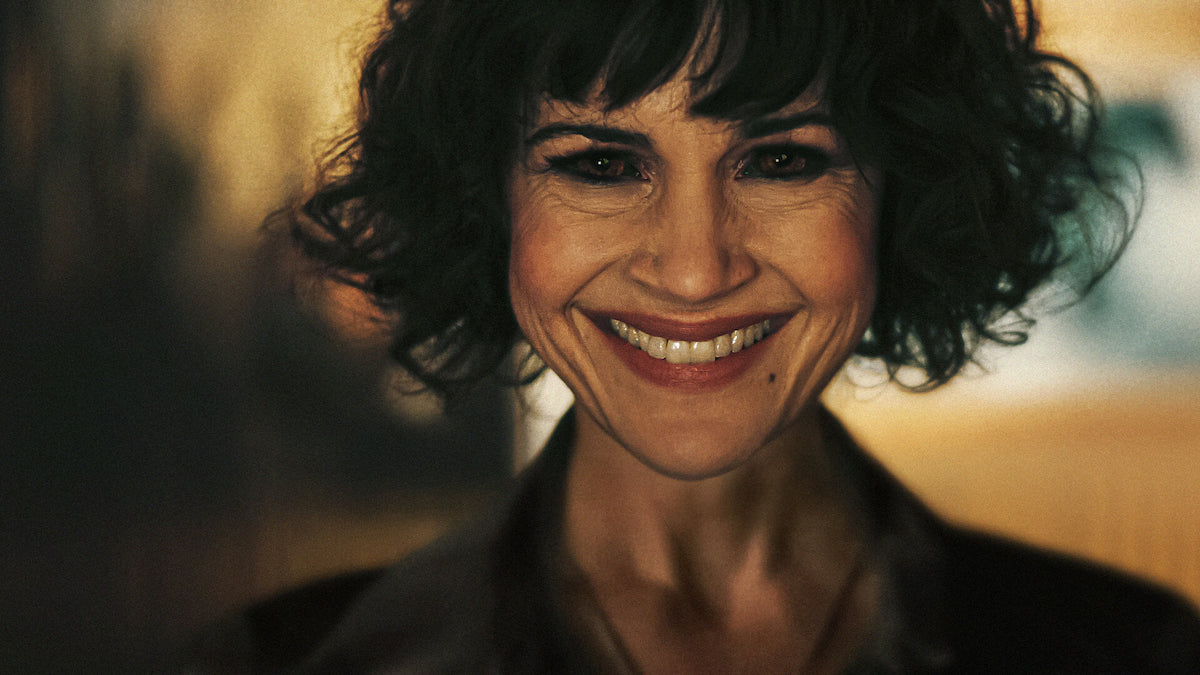
The show’s many narrative threads don’t help matters any. The opening instalment reveals Roderick Usher at the funeral of his last three children. We learn through a montage sequence that, in addition to being on trial for corporate crimes against humanity, all of his children have died in the past week. He’s now only survived by his granddaughter Lenore (Kyleigh Curran) and his twin sister Madeline (Mary McDonnell). The presence of Verna (Gugino), a mysterious and supernatural woman who haunts Roderick and is somehow responsible for his children’s deaths, adds a further touch of foreboding.
After collapsing outside the funeral, Roderick summons C. Auguste Dupin (Carl Lumbly), the prosecutor trying to hold the family responsible for its role in the opioid crisis, to his dilapidated childhood home and promises to confess. Before doing that, however, he needs to recount his whole life story and the stories of his children’s deaths. This allows the series to flash back and forth in time: from the 1980s, to a week earlier when his children were alive, to the present-day scene between the two men. The combination of all these storylines, though ambitious, succeeds mostly in preventing the audience from becoming invested in any one story and muddles between a linear narrative structure telling the broader legend of the Usher family, and the violent vignettes focusing on the children.
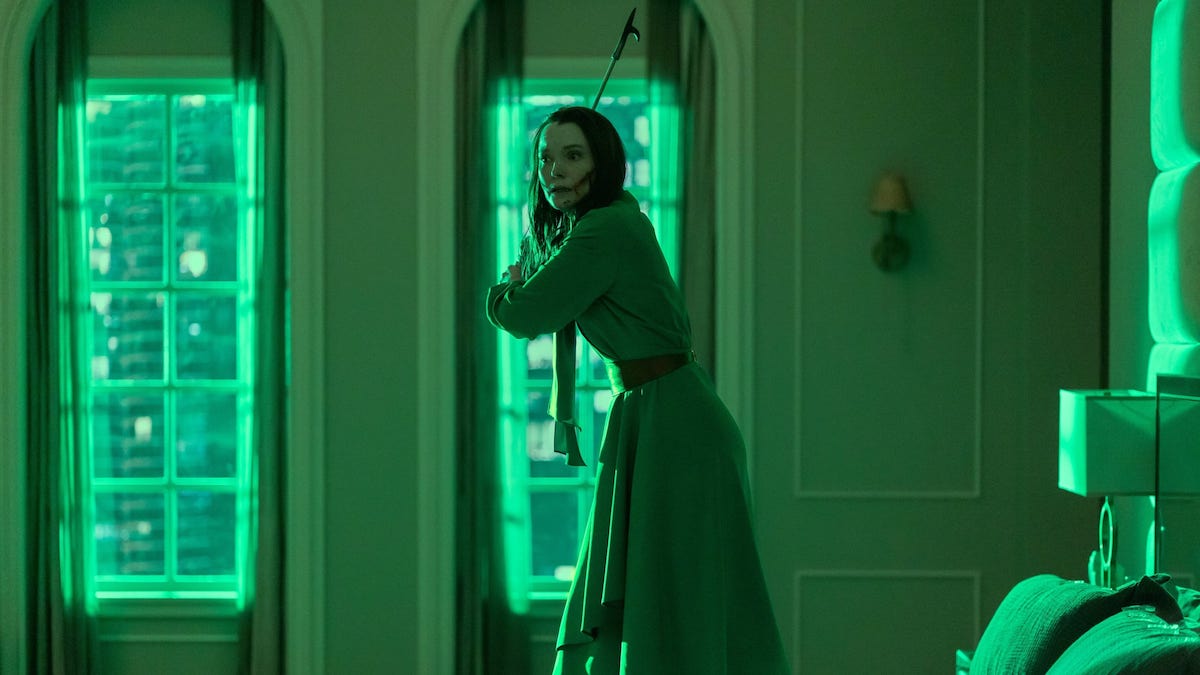
The series is buoyed by strong performances and an undeniable visual style that makes Flanagan’s work feel distinct. Even in a less developed world and emotional landscape, Flanagan always elicits grounded performances from his many actors, and after working with so many of them for so long it’s easy to understand why. But the writing and dialogue are uneven throughout, and the lacerating high-stakes corporate speak doesn’t rise above the shows it’s clearly trying to emulate. But the reason so many people come back to watch his work every year isn’t because of the scares….
Flanagan’s more successful TV projects (The Haunting of Hill House and Midnight Mass) succeeded because they were grounded in nuanced emotional stories about how painful experiences like grief, death, and addiction affect people differently. The horror portrayed in the worlds he created was always a response to the horrors of real life. Here, however, in trying to depict the grotesque nature of extreme wealth and its corruption of the soul, Flanagan forgets to make his characters compelling and thus can’t hold our attention, or finds ways to make the horror especially horrifying.
The aim seems to be that in seeing this debaucherous and despicable family die violently the audience will feel some combination of satisfaction and dread, but ultimately their many deaths, the mystery behind them and the series itself, leave us cold.
USA | 2023 | 8 EPISODES • 493 MINUTES | 2.35:1 | COLOUR | ENGLISH

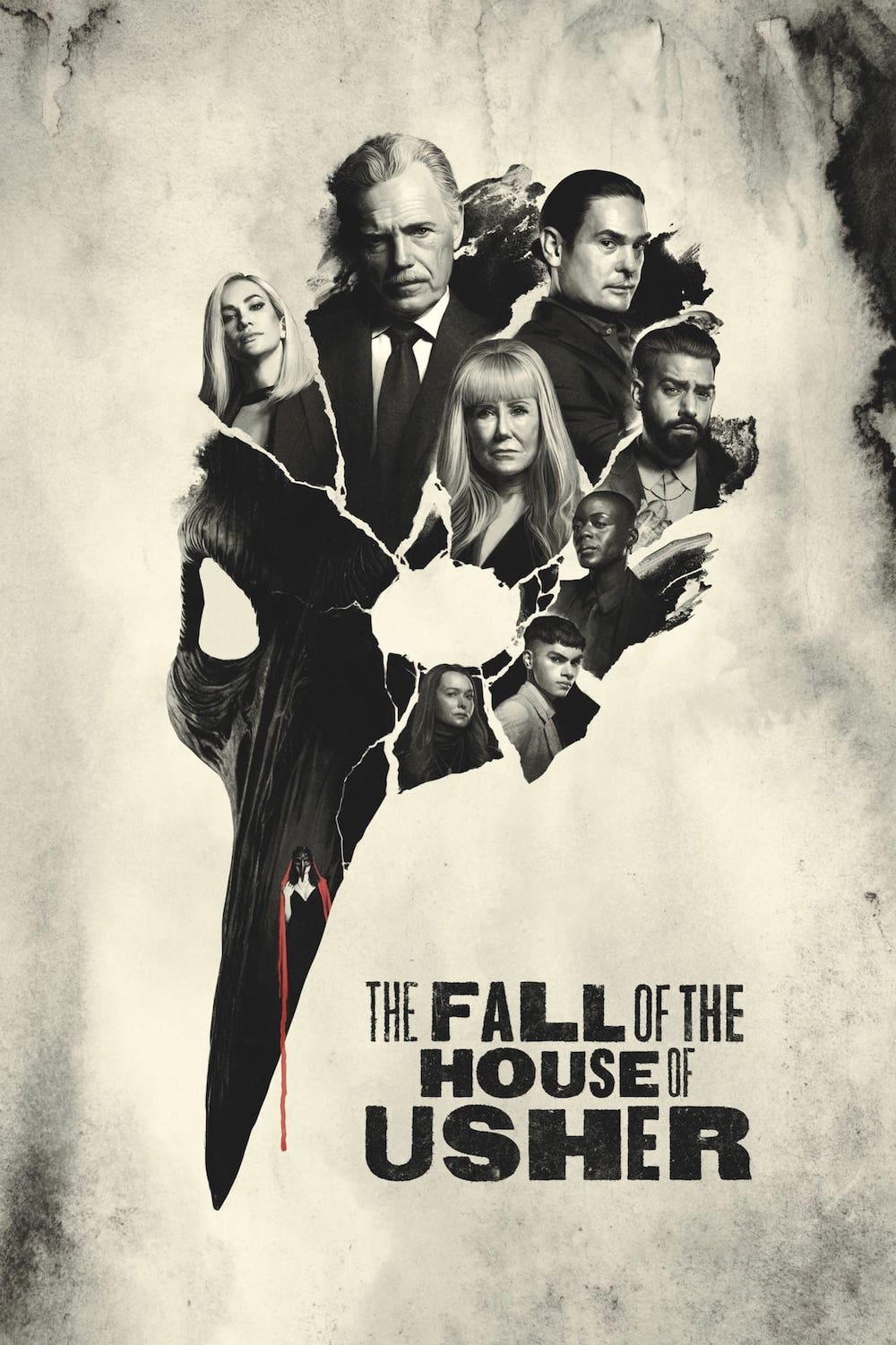
writers: Mike Flanagan, Emmy Grinwis, Justina Ireland, Mat Johnson, Dani Parker, Rebecca Leigh Klingel, Jamie Flanagan & Kiele Sanchez (based on ‘The Fall of the House of Usher’ and other works by Edgar Allan Poe).
directors: Mike Flanagan & Michael Fimognari.
starring: Carla Gugino, Bruce Greenwood, Mary McDonnell, Henry Thomas, Kate Siegel, Rahul Kohli, Samantha Sloyan, T’Nia Miller, Zach Gilford, Willa Fitzgerald, Michael Trucco, Katie Parker, Sauriyan Sapkota, Matt Biedel, Crystal Balint, Ruth Codd, Kyliegh Curran, Carl Lumbly & Mark Hamill.
